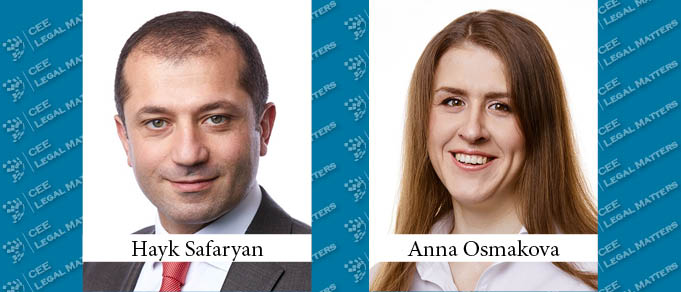There are currently multiple initiatives regarding the increase in rates for taxes retained at source under double taxation treaties (“DTTs”) between the Russian Federation and some foreign jurisdictions. The Ministry of Finance confirmed that it favours such increases. At the same time, the Russian State Duma reportedly favours maintaining reduced tax rates in DTTs for intragroup payments in order to mitigate any eventual adverse tax consequences by these new tax measures for foreign investors.
Initially, Russian President Vladimir Putin had proposed increasing the tax rate at source to 15% for cross-border distribution of income from the Russian Federation (i.e. for dividends and interest) as an anti-crisis measure to support the Russian economy.
Position of the Ministry of Finance
Ahead of the implementation of this initiative, on 29 April 2020, the Ministry of Finance issued letter No. 03-08-05/35110* explaining the reasons and goals behind such an increase. The letter states that the availability of preferential tax rates on income in the form of dividends and interest is the main condition for creating a favourable tax regime for foreign investors. However, the proposed changes were dictated by the difficult economic situation in Russia and around the world, and were caused by the measures taken to support Russia’s population and economy in the fight against the coronavirus pandemic.
The Ministry of Finance noted that the changes under consideration will affect only “transit jurisdictions”. As a rule, these jurisdictions are the locations of intermediate companies that do not conduct real economic activity and are used exclusively for tax evasion and the outflow of capital from Russia.
Relevant changes have already been initiated in DTTs concluded between the Russian Federation and Cyprus, Luxembourg and Malta.
The ministry also confirmed that these measures are aimed at combating tax evasion through the use of schemes where income is derived in Russia through transit jurisdictions.
This approach is already reflected in the draft amendments the Ministry of Finance requested in the DTT with Cyprus, which applies an increased tax rate on dividends and interest at source, not only when paying income directly to a resident in Cyprus, but also when effecting transit payments to a beneficiary in Cyprus.
It cannot be ruled out that an increase in tax rates at source for interest and dividends might affect good-faith taxpayers. For example, this could be the case for international groups of companies doing business in Russia, particularly when holding activities and financing within the group are connected with the jurisdictions mentioned above.
State Duma initiative
The Russian State Duma intends to avoid such a situation by facilitating access to reduced tax rates on DTTs for Russian companies which make cross-border payments within a group to foreign shareholders. According to media reports*, a bill to this effect has already been drafted. This bill equates the indirect participation of foreign shareholders in Russian companies with direct participation in such cases.
In practice, this will mean the following: when distributing income to a holding in a respectable jurisdiction through a subholding in an unfavourable jurisdiction like Cyprus, Luxembourg or Malta, the applicable DTT will be determined by reference to the jurisdiction where the indirect shareholder of the Russian company, which is the direct recipient of dividends, is located.
The Russian State Duma is expected to receive the corresponding bill in the near future.
* In Russian
By Hayk Safaryan, Partner, and Anna Osmakova, Associate, CMS Russia
